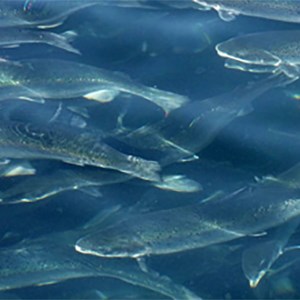From wood to fish

Single cell protein (SCP) grown on forest-based residual streams can be a good feed alternative to fish. A feed concept ready to commercialize.
RISE (Research Institutes of Sweden), RISE Processum, the Swedish University of Agricultural Sciences and the Biorefinery Domsjö Fabriker AB have developed a fish feed formula replacing soy with single cell protein (SCP) grown on forest-based residual streams, in the project SALMONAID.
Here are some of the findings from the finished project:
- Single cell protein (SCP) with a crude protein content of 57% of dry matter was successfully produced in the Swedish Biorefinery Demo
plant (scale of 10 m3). - The amino acid profile of SCP is quite comparable to soy in percent of protein, with similar levels of two limiting amino acids (methionine and lysine).
- Processing design matters. Extrusion changed the protein structure and larger protein aggregates was formed. Feed containing
pre-extruded SCP improved digestibility and clearly indicated a positive effect on growth. - Replacing all soy protein concentrate with SCP showed no reduction in growth, feed intake, feed conversion or protein composition in
rainbow trout after 12 weeks feeding trials. - Life cycle assessment of the novel feed formula produced at pilot scale indicates reduced carbon footprint and land occupation but at
the cost of slightly higher energy demand.

In close dialogue with industry representatives (from forestry, fish farming and feed manufacture), the project has for 3 years evaluated SCP production, processing techniques and material properties for feed manufacture, effects on fish health and growth and environmental sustainability.
Read more about the project SALMONAID
